Written by Salina Edwards.
Growing up on a farm was never easy–the work was hard, the days were long, and the summer was the busiest time of year. In spite of the days spent picking rocks in 25 degree heat, I do consider this to be one of the most rewarding experiences of my life. But while my talents in rock picking haven’t been entirely transferable to my current academic endeavours, I do bring something to my day-to-day that I think is much more valuable: perspective. Like many others living in rural communities, I often feel that we have fewer opportunities to share our views on issues such as climate change. Therefore, I wanted to give members of rural communities an opportunity to do just this: voice their perspective.
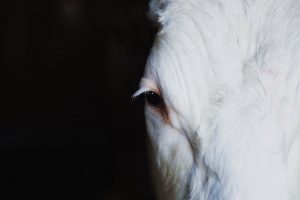
My family still maintains the cattle ranch I spent 17 years on in the Northern Peace Region of BC. This farm has been in the family for generations, and I am well acquainted with the yearly crop and the yearly weather and how this affects our lives. However, what I was most interested in was gathering the unfiltered opinion of the effects of climate change from the people who know the area best: rural community residents. And so, I asked my family to compile some phone numbers and I started reaching out to people living around the rural area where I grew up. The following segment features their raw, uncut opinions on climate change, and what we should be doing about it.
From Farmer to Farmer
The first person I reached out to was a local farmer who grows wheat, barley, oats, and fescue, and has resided in the area for over 25 years. As a former farmer myself, I am well aware of the trivialities in maintaining a healthy crop and our reliance on the environment. We chatted about climate change and I asked for his opinion on the sort of economic impact they see climate change having on their business, stating: “If I don’t adapt or start to change practices, I will go out of business and it won’t be viable anymore.”
There was acknowledgement that change was needed, but there was concern in the way these changes could be enacted. I was told very honestly what I already knew: “Farmers hate change.” But I was also told something about current farming practices that I hadn’t considered:
Rather than being told what we’re doing is wrong, we need to be persuaded or given different options … If I was given the opportunity to use alternative energy sources, I’d be willing to drive electric tractors… I’d be more than willing to use one.
Not only does the changing climate affect rural residents economically, but it also has a large impact on health and well-being. Difficult weather leads to low crop output, which is an extremely stressful situation.
When the crops aren’t good, it becomes a financial issue which causes stress … I start wearing out the dentures on my teeth and pulling out hair … I’m going grey and the waitress thinks I’m my best friend’s dad!
Clearly, the effects of climate change have a huge impact on many areas of rural farm life. The thing I learned the most from this conversation was not that rural farmers are unwilling to adapt, but that they lack the resources to do so.
One strategy this participant has been trying is Living Labs, which is part of the Government of Canada’s Agricultural Climate Solutions Program (ACS). The goal of this program is to accelerate co-development, testing, adoption, dissemination, and monitoring of technologies and practices, including beneficial management practices (BMPs) that sequester carbon and/or mitigate greenhouse gas (GHG) emissions. More information on this program can be found here.
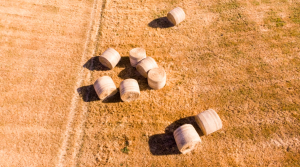
Predicting the Unpredictable
“Climate change is misrepresented. It won’t affect the earth long-term, but it will kill humans … The earth will recover.”
My next interviewee was a teacher at the rural school I went to as a youth, and who has been a part of our community for over 50 years, growing canola, barley, and fescue. Therefore, he is very familiar with the fact that living in the northern prairies means experiencing harsh weather.
We’ve always had hot and dry summers and bone-chilling winters, and one thing about farming is that you cannot predict how the crop will turn out in any given year. We chatted about the increasing temperature and other extreme weather effects of climate change. After spending such a prolonged period of time in one area of Northern BC, he told me that he didn’t think there were any specific adaptation strategies that could help him prepare for the changing weather. His best strategy? “Always plan for dry … This country is too dry in general and because I can’t predict it, so I always plan for it to be a bit too dry.”
Considering he works at the rural school, I was interested in whether or not he thought there was enough attention being brought to this issue in the area they live and teach in: “[It’s] not a big priority … I think it’s hard for people to accept it when [they] can’t see it for themselves … In our area it’s hard to see the effects.” He also stated they were satisfied with the quality of climate change curriculum being taught in schools.
Climate change is a big topic, and we speak about it in our daily discussion–it’s not so much just teaching, but discussing the world. I try to make sure students know something about this, especially science. Sometimes it’s lacking or people don’t want to listen to science if it’s not exactly what they want to hear … Climate change is misrepresented. It won’t affect the earth long-term, but it will kill humans … The earth will recover.
When I asked if he thought the issue of climate change will become more pertinent in the upcoming years, he responded with:
Yeah, definitely. It’s gonna be a big issue. Even if the scientists can’t find the numbers to prove it, the earth is still warming up and climate change will be an issue. I can’t imagine how big it could be … Could change a lot of things. Even if it wasn’t just science, the media loves the story and the media is very powerful.
And because I had to ask about the aforementioned electric tractors idea, he said “I don’t care what gets my field done … We’re gonna look back someday on the fossil fuel engine and think ‘wow, was that ever archaic.”
My brother works as a farm equipment salesman around the Northeast Region of BC and I think I might pitch him this electric tractor idea… If it meant having to take a break from the field every few hours to charge up again, it might slow progress a touch, but after spending 10 hours in the field during summer harvest I think we could all use a bit of a longer break. Even the question of a hybrid would not be off the table.
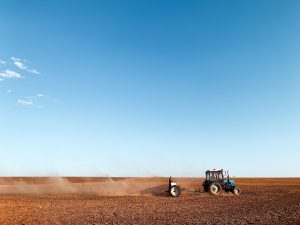
A Perspective from the Past
My final interviewee had specifically requested to have his name attached to their thoughts, and so I am pleased to introduce a long-time farmer and long-time family friend: Arthur Hadland. Arthur has a long history with the Northern Region of BC and has spent the last 20 years writing a 711-page book, titled “Our Hadland Heritage.” This novel chronicles his family’s pioneering history from the 17th century to the present and contained within these pages are not only the history of the Hadland family, but an entire documentation of weather events in the Northern Region from the time of his father’s immigration in 1928. Arthur tells me:
He was about 8 years old when he moved here. It was before they really recorded the weather, they didn’t have weather recording stations at the time so a lot of it is memory … my father provided a very good verbal perspective … they arrived during this drought period and they survived with the optimism that things would get better, and they did.
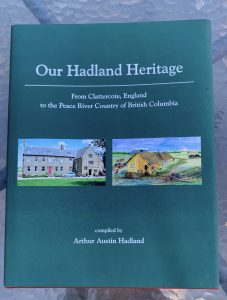
Arthur spoke of how the climate is always in a state of change and how he is “so disappointed with the way the media has attached itself to it.” Arthur went into great detail explaining the way the landscape has changed in the past and what it looked like 8,000 years ago. He spoke of the glacier that carved its way through the Peace River valley, going through both my family’s farm and his. This piece of history tells us of how the shifting weather can drastically change the landscape, and Arthur tells us that what they say is correct: “The climate is changing–it has already changed and it’s gonna change again.”
For instance, the heat dome that hit the Northern Region in the summer of 2021 was certainly the hottest weather that I had ever personally experienced. I had spent that summer working on the farm after losing my job in Vancouver as a result of the pandemic. These were terrible times for everyone, but a good excuse to spend my summer in the tractor on the field for the first time since I left home many years ago. According to the history that Arthur has gathered: “Last year, during that heat dome … It has never been that hot ever.” On June 21, 2021, the temperature was only a couple degrees shy of hitting 40 degrees Celsius.
I am not the least bit intimidated by it and I really have thought about it. When I first started as a youth with my father, we were growing really short-season canola and we loved this farming business. In the last 30 years we’ve been able to grow longer-season canola quite successfully … so I think our output has expanded quite a bit and I think this is part of the larger shift in weather patterns.
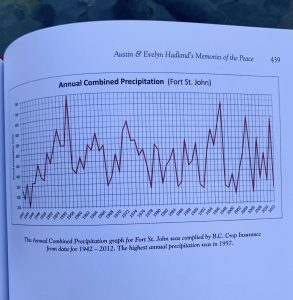
The only way we can prepare for the future is to learn from the past. Is the climate changing? Undoubtedly. As Arthur puts it: “it is gonna change, but how much it’s gonna change I don’t know–my middle name is not G. O. D.” And perhaps a little advice for the future:
For the next generation, I think they need to be better informed. I think the schooling system has to provide the facts on the way the provinces have shifted in the past … [we need] far more emphasis on that. It won’t go to hell, it will change. I think that’s the future: looking after water, a better education system, and agriculture. Those are the things we’ve gotta really start talking about–food sustainability for the future. We can’t be destroying our forests, we can’t be destroying our land.
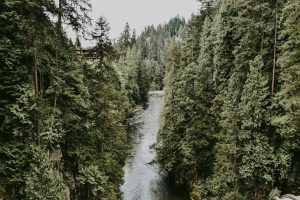
So, what can we take away from this? Well, for one: the future isn’t bleak. Each perspective I have gathered comes from someone who has spent a long time building a deep relationship with the environment and watching it change every day. We have been relying on the natural world for our existence since humans have been around, and what we can learn from each of these perspectives is simple–we need to take care of it.
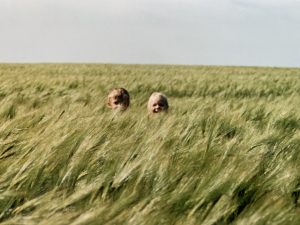
Do you have a perspective to share? Please let us know in the comment section below!
Contact us at rhsrn.bc@ubc.ca or find us on Twitter @RHSRNbc.
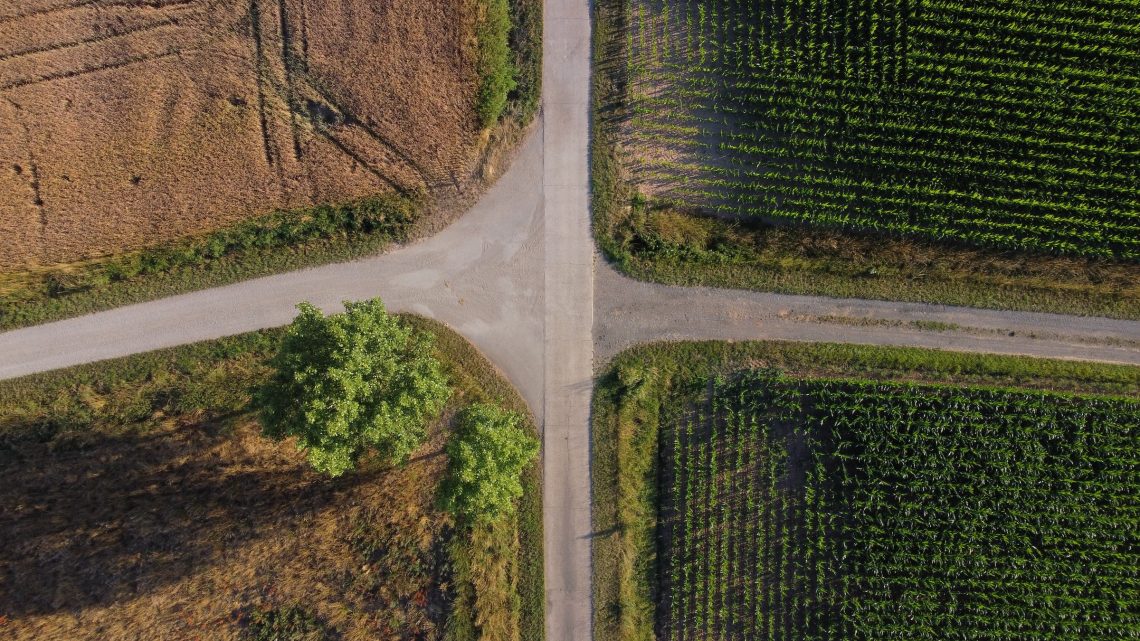
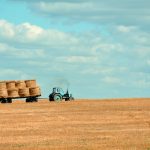
Gus
August 25, 2022 — 11:57 am
That is a awesome, awareness of other peoples thoughts , thankyou
Dennis Giesbrecht
August 29, 2022 — 6:05 pm
Excellent article. Arthur was a good interview.